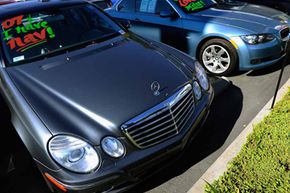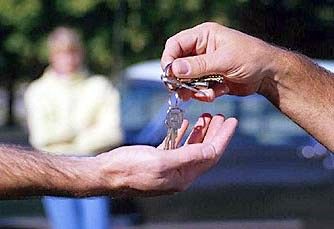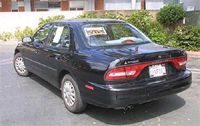You know how the credit score reporting companies hang that number over your head for everything you want to do in your life, ever? Buying a house, buying a car, getting a credit card, even getting a job depends on that one mysterious number. Wouldn't it be cool if someone besides you had a number like that following them around? Maybe something inanimate? Maybe, perchance, every car built since 1981?
Well, dreams can come true. AutoCheck is a service of Experian, one of the huge companies that provides your credit score. It applies its data-crunching mega-servers to create a similar score for nearly every used car on the road in the United States -- and there's something like a half a billion cars in its national vehicle database. That's right. A half a billion. You might think it takes a few days and a stack of dollars to get this precious score, but no. It takes about two seconds and 30 bucks. Make that 45 bucks if you want to look up more than one car.
Advertisement
AutoCheck has been providing these scores to consumers since 2002, but somehow it's not as well-known as its most famous competitor, CarFax. The biggest difference between the two is in the sources they use to determine a car's history. They do share some sources in common, but they have their own exclusive go-to guys, too. "AutoCheck exclusives are around accident information, specifically frame damage," said Lynn Kator, senior director of marketing at Experian Automotive.
"We take a lot of info and distill it into one easy-to-understand number," she added. "Instead of you trying to figure out the data, we built the algorithm to do that on the back end. Any and all information helps the consumer make a more educated decision. A more complete picture makes for a more confident decision."
How complete is that information? Let's peek behind the curtain to check out AutoCheck.
Advertisement



